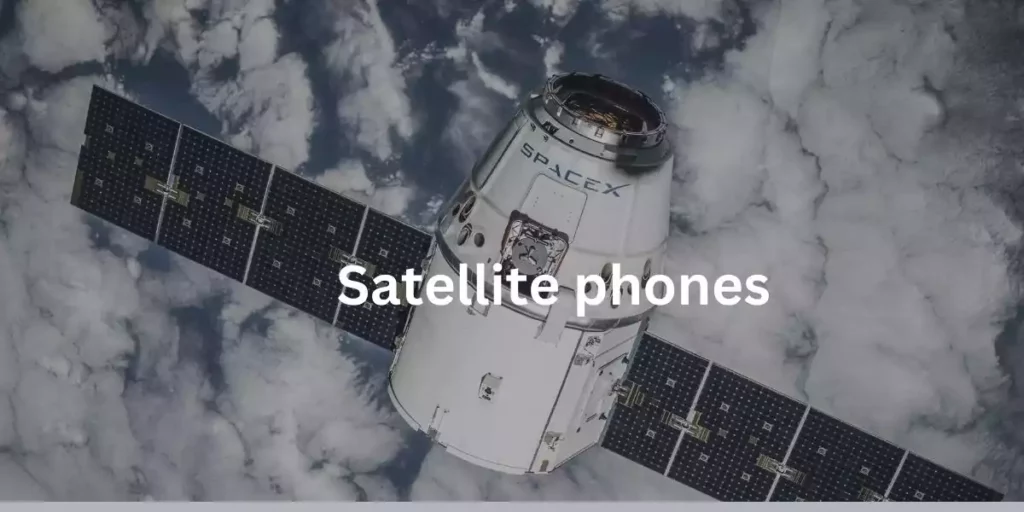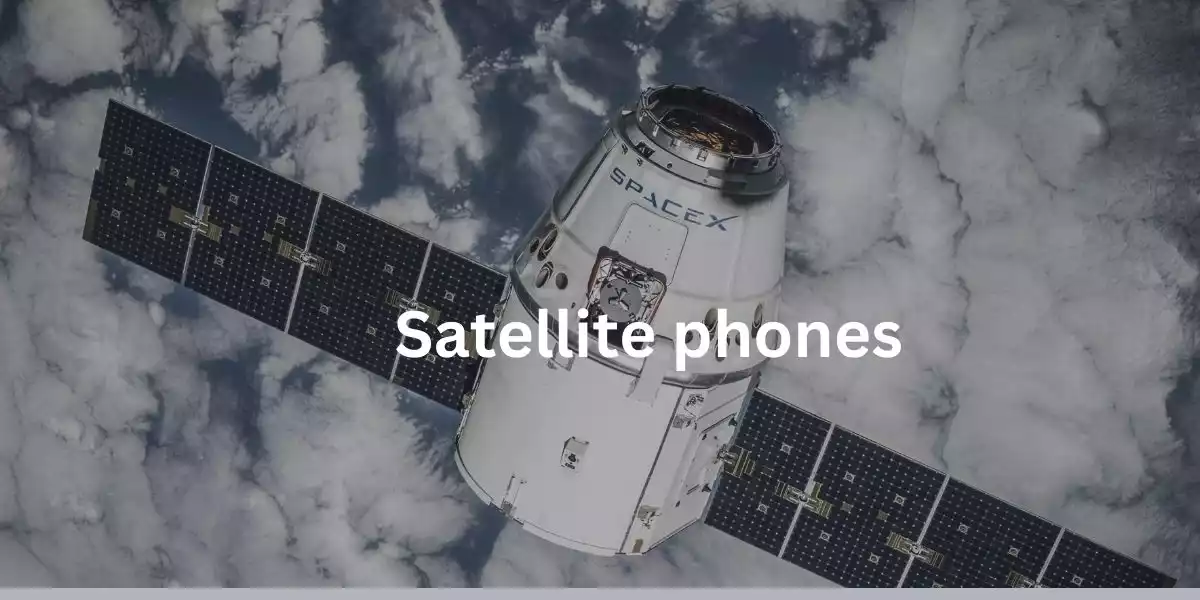A satellite phone is a type of mobile phone that connects to orbiting satellites instead of terrestrial cell towers to make and receive calls and send and receive text messages. They are essential in remote or rural areas without traditional cell phone service, during natural disasters, or for travelers in areas with unreliable cell service, such as ships, planes, or wilderness locations.
Key Features and Usage of Satellite Phones
Coverage: Satellite phones rely on satellites to transmit signals. Different providers offer varying coverage levels, with some covering almost the entire globe and others focusing on specific regions. Checking a provider’s coverage map before purchasing is crucial to ensure service availability in needed areas.

Satellite Types:
- Geostationary Satellites: These remain in a fixed position relative to the Earth’s surface, located above the equator. They offer broad coverage but may have higher latency due to the distance.
- Low Earth Orbit (LEO) Satellites: These orbit much closer to the Earth, providing lower latency and better performance but requiring a network of satellites for comprehensive coverage.
Call Quality: Satellite phone call quality can be affected by the type of satellite, user location, and weather conditions. Generally, the call quality might be slightly lower than traditional cell phones due to the long-distance signal travel and potential interference.
Features: Satellite phones can come with various features such as built-in GPS, waterproof designs, or the ability to send and receive emails. When choosing a satellite phone, consider the features that are most important for your needs.
Service Plans:
- Prepaid Plans: Pay in advance for a set amount of call time or data.
- Postpaid Plans: Pay for the calls and data used at the end of each billing cycle.
Accessories: There are numerous accessories available, such as carry cases, external antennas, and car chargers, which can extend the range, protect the device, and keep it charged on the go.
Emergency Services
Satellite phones are crucial for emergency communication, allowing users to call for help in remote or disaster-stricken areas where other communication forms fail. Many providers offer emergency call services that enable calls to designated emergency numbers even without remaining call credit.
Apply Now Here:
Alternatives to Satellite Phones
For occasional use, satellite messaging devices can be a cost-effective alternative. These devices allow text message communication via satellite but do not support voice calls, making them suitable for infrequent users.
Importance of Satellite Phones
- Reliability in Remote Areas: Satellite phones provide a lifeline in areas without traditional cell service.
- Disaster Resilience: They remain functional during natural disasters when conventional networks might be down.
- Travel Necessity: Essential for travelers in remote or unreliable service areas.
- Emergency Communication: Vital for calling for help in critical situations where other forms of communication are unavailable.


